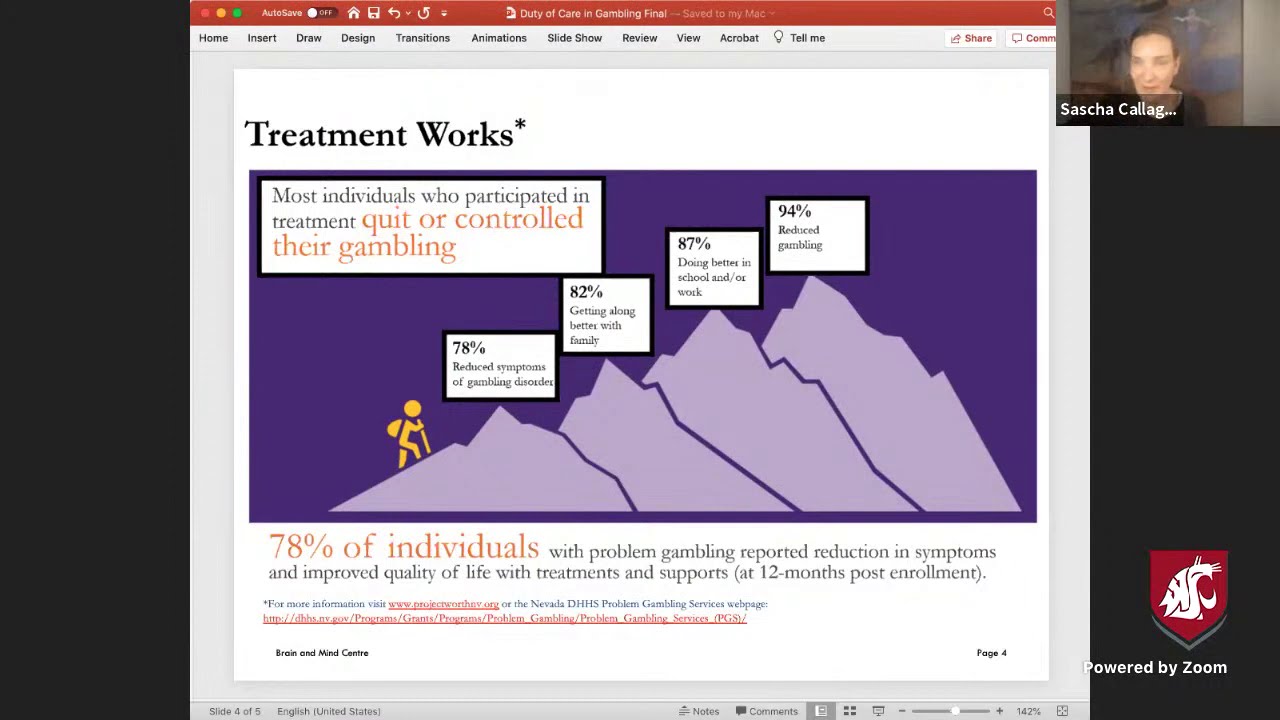The Legal And Ethical Issues Of Gambling In Different Countries - A Global Perspective
The legal and ethical issues of gambling in different countries have been a topic of debate for decades, and continue to vary widely from country to country. Some countries have welcomed the industry and set up regulated markets, but others are more against it because they see gambling as a social vice or moral failing.
Author:Suleman ShahReviewer:Han JuMar 08, 202315.6K Shares402K Views

The legal and ethical issues of gambling in different countrieshave been a topic of debate for decades, and continue to vary widely from country to country.
While some nations have embraced the industry and established regulated markets, othershave taken a more prohibitive stance, seeing gambling as a social vice or moral failing.
The interplay between legal frameworks, public perception, and the reality of gambling's social and economic impact raises a host of ethical questions, from the treatment of problem gambling to the role of government in regulating the industry.
In this article, we will explore the legal and ethical issues of gambling in different countries, examining the diverse perspectives and policies that shape the global landscape of this contentious industry.

Law & Gambling II: What is duty of care in gambling? Legal and ethical obligations
The Legal And Ethical Issues Of Gambling In Different Countries
The legality and ethics of gambling vary from country to country and can be influenced by cultural, social, and religious factors. In this article, we will explore the legal and ethical issues of gambling in different countries.
The United States - A Patchwork Of State Laws
The United States has a complicated relationship with gambling, and its laws and regulations can vary significantly from state to state.
While some states have embraced gambling as a source of revenue and tourism, others have outright banned it or only allow limited forms of gambling.
The federal government has also passed laws regulating specific aspects of gambling, such as online gambling and sports betting.
China - Strict Regulations And Anti-Corruption Campaigns
Gambling is heavily regulated and restricted in China, with only two regions - Macau and Hong Kong - allowing casinos. However, even in these regions, the government tightly controls the industry to prevent corruption and ensure social stability.
In recent years, the Chinese government has cracked down on illegal gambling operations and launched anti-corruption campaigns targeting high rollers.
Australia - A Culture Of Gambling
Australia has a long historyof gambling, and it is a popular form of entertainment in the country. However, gambling is also heavily regulated to protect consumers and prevent problem gambling.
The Australian government has implemented a range of measures to regulate the industry, including mandatory pre-commitment systems, advertising restrictions, and consumer protection laws.
United Kingdom - A Model Of Regulation
The United Kingdom has one of the most comprehensive and effective gambling regulatory systems in the world.
The UK Gambling Commission regulates all forms of gambling in the country, and operators must comply with strict licensing requirements and consumer protection measures.
The UK also has a strong tradition of responsible gambling, with a range of support services available to help prevent and treat problem gambling.
Japan - A Changing Landscape
Japan has a complex relationship with gambling, with some forms of gambling such as pachinko being legal and widely accepted, while others such as casinos are heavily restricted.
However, in recent years, the Japanese government has taken steps to legalize and regulate casinos as part of a broader effort to boost tourism and stimulate economic growth.
How Do Different Countries Regulate Online Gambling?
Different countries have different approaches to regulating online gambling. Some countries have fully legalized and regulated online gambling, while others have a more restrictive approach. Here are some examples of how different countries regulate online gambling:
- United Kingdom -The UK is one of the most heavily regulated online gambling markets in the world. The UK Gambling Commission regulates all forms of gambling in the country, including online gambling. All online gambling operators must be licensed by the commission and follow strict regulations to protect players.
- United States -Online gambling is legal in some states in the US, but it is heavily regulated. Each state has its own regulations and licensing requirements for online gambling operators. In states where online gambling is legal, players must be physically located within the state's borders to play.
- Australia -Online gambling is legal in Australia, but it is heavily regulated. The Australian Communications and Media Authority regulates all online gambling in the country. Online gambling operators must be licensed by the authority and follow strict regulations to protect players.
- China - Online gambling is illegal in China, but there are still many online gambling sites that are accessible to Chinese players. The Chinese government has been cracking down on illegal online gambling sites and has been imposing heavy fines and penalties on operators.
- Canada -Online gambling is legal in Canada, but it is regulated by the provincial governments. Each province has its own regulations and licensing requirements for online gambling operators. Players must be physically located within the province's borders to play.
Overall, the regulation of online gambling varies widely from country to country, with some countries having strict regulations and others having more permissive regulations.
People Also Ask
How Does The Legal Status Of Gambling Vary Across Different Countries?
The legal status of gambling varies widely across different countries. Some countries have legalized and regulated gambling industries, while others have completely banned it.
What Are Some Ethical Concerns Surrounding Gambling In Different Countries?
Some ethical concerns surrounding gambling in different countries include the potential for addiction and the negative effects on families and communities. There is also the issue of gambling being used as a means of laundering money.
How Do Cultural Attitudes Towards Gambling Impact Its Legality And Regulation In Different Countries?
Cultural attitudes towards gambling can have a significant impact on its legality and regulation in different countries. In some cultures, gambling is seen as a harmless form of entertainment, while in others it is viewed as a vice that should be discouraged or even prohibited.
What Are Some Examples Of Countries With Strict Gambling Laws?
Some examples of countries with strict gambling laws include Saudi Arabia, where all forms of gambling are illegal and carry severe penalties, and North Korea, where gambling is strictly controlled and only available to foreigners.
How Do Online Gambling Regulations Differ From Traditional Brick-and-mortar Casinos In Different Countries?
Online gambling regulations differ from traditional brick-and-mortar casinos in different countries, with some countries banning online gambling altogether, while others have established regulatory frameworks to ensure fairness and prevent problem gambling.
Final Words
The legal and ethical issues of gambling in different countries are complex and multifaceted. The legality of gambling varies greatly around the world, and so do the ethical concerns associated with it.
While some countries have embraced gambling and regulated it to varying degrees, others have chosen to ban it outright. The ethical concerns of gambling include issues related to addiction, problem gambling, and the exploitation of vulnerable individuals.
Ultimately, it is up to each individual country to weigh the benefits and drawbacks of legalizing or prohibiting gambling, and to ensure that it is conducted in a responsible and ethical manner.

Suleman Shah
Author
Suleman Shah is a researcher and freelance writer. As a researcher, he has worked with MNS University of Agriculture, Multan (Pakistan) and Texas A & M University (USA). He regularly writes science articles and blogs for science news website immersse.com and open access publishers OA Publishing London and Scientific Times. He loves to keep himself updated on scientific developments and convert these developments into everyday language to update the readers about the developments in the scientific era. His primary research focus is Plant sciences, and he contributed to this field by publishing his research in scientific journals and presenting his work at many Conferences.
Shah graduated from the University of Agriculture Faisalabad (Pakistan) and started his professional carrier with Jaffer Agro Services and later with the Agriculture Department of the Government of Pakistan. His research interest compelled and attracted him to proceed with his carrier in Plant sciences research. So, he started his Ph.D. in Soil Science at MNS University of Agriculture Multan (Pakistan). Later, he started working as a visiting scholar with Texas A&M University (USA).
Shah’s experience with big Open Excess publishers like Springers, Frontiers, MDPI, etc., testified to his belief in Open Access as a barrier-removing mechanism between researchers and the readers of their research. Shah believes that Open Access is revolutionizing the publication process and benefitting research in all fields.

Han Ju
Reviewer
Hello! I'm Han Ju, the heart behind World Wide Journals. My life is a unique tapestry woven from the threads of news, spirituality, and science, enriched by melodies from my guitar. Raised amidst tales of the ancient and the arcane, I developed a keen eye for the stories that truly matter. Through my work, I seek to bridge the seen with the unseen, marrying the rigor of science with the depth of spirituality.
Each article at World Wide Journals is a piece of this ongoing quest, blending analysis with personal reflection. Whether exploring quantum frontiers or strumming chords under the stars, my aim is to inspire and provoke thought, inviting you into a world where every discovery is a note in the grand symphony of existence.
Welcome aboard this journey of insight and exploration, where curiosity leads and music guides.
Latest Articles
Popular Articles